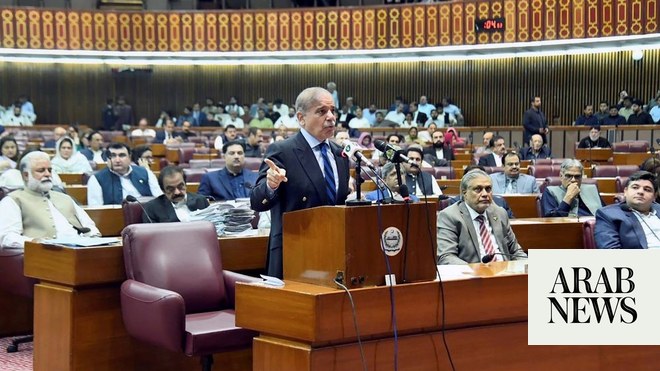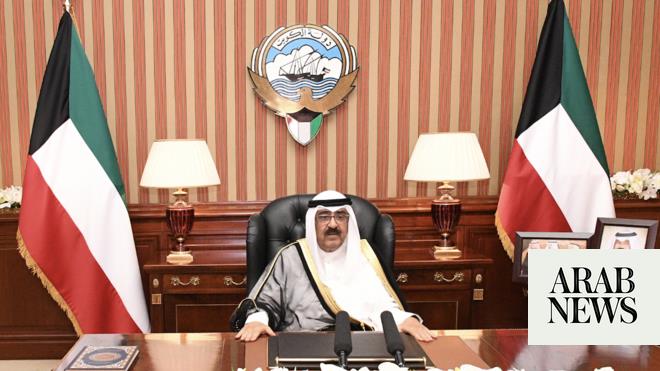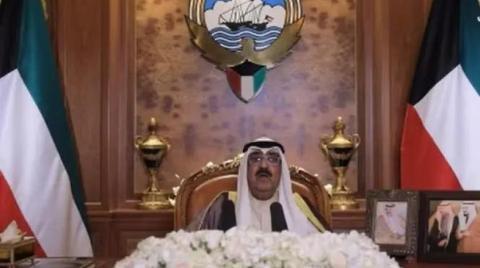
The government’s term was due to expire on Aug 12; the caretaker authority now has 90 days to organize the election
However, the poll seems likely to be delayed constituency boundaries need to be redrawn following a recent census
ISLAMABAD: Pakistan’s National Assembly was dissolved on Thursday when President Arif Alvi signed a request from Prime Minister Shehbaz Sharif, sending the South Asian country into election mode.
“The president dissolved the National Assembly on the advice of the prime minister under Article 58-1 of the Constitution,” the President’s Office said in an official statement.
The parliament’s five-year term was due to expire on Aug. 12. The caretaker government now has 90 days to organize a general election, instead of only 60 days if the assembly had been dissolved at the end of its term, as per the rules of the Constitution.
The election is therefore due by November but the decision by the government last week to approve the results of a new digital census has created some uncertainty, as the Election Commission is now bound under the rules of the Constitution to redraw constituency boundaries based on the latest population counts. The process could take up to six months and means polling day could be pushed back.
The commission has already stated it will be unable to organize a general election based on the new population counts within the three-month deadline if it has to redraw constituency boundaries.
Meanwhile, Pakistan’s myriad economic and political woes continue. At the heart of the political crisis is Imran Khan, the former prime minister whose ouster last year plunged the country into months of unrest and violent street protests.
The ex-premier, the country’s most popular politician by far, was convicted and jailed on graft charges last week and on Tuesday election regulators barred him from politics for five years, for all practical purposes ending his chances of running in any upcoming elections.
His legal team is appealing the conviction and the disqualification, but Khan also faces more than 100 other cases on charges ranging from terrorism to corruption and murder. He says they are part of a campaign against him and his Pakistan Tehreek-e-Insaf party, orchestrated by the powerful military establishment and his political opponents. Both deny the allegation.
Meanwhile, inflation remains at a record high and millions of Pakistanis are grappling with a cost-of-living crisis. The country’s Consumer Price Index rose by 28.3 percent in July, year-on-year, with prices up 3.5 percent in July compared with the previous month. In June, the year-on-year increase in the index was 29.4 percent, following a record 38 percent in May.
On Aug. 1, Pakistan announced an increase in petrol and diesel prices to meet fiscal objectives set out in a deal with the International Monetary Fund, further fueling sky-high inflation.
Islamabad secured the last-gasp $3 billion IMF agreement on June 30. In return it committed to a petroleum levy of up to 50 rupees ($0.60) a liter, alongside a string of other painful measures, including increased energy prices and a market-based exchange rate, which has already caused inflation to rise.








